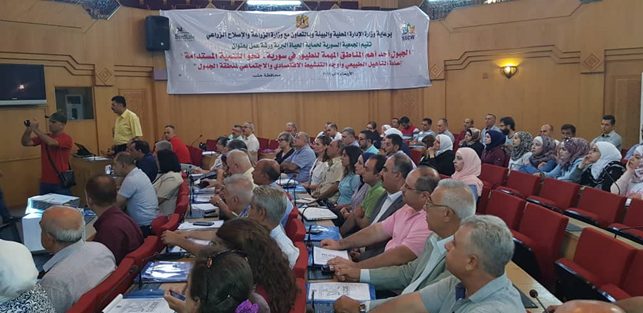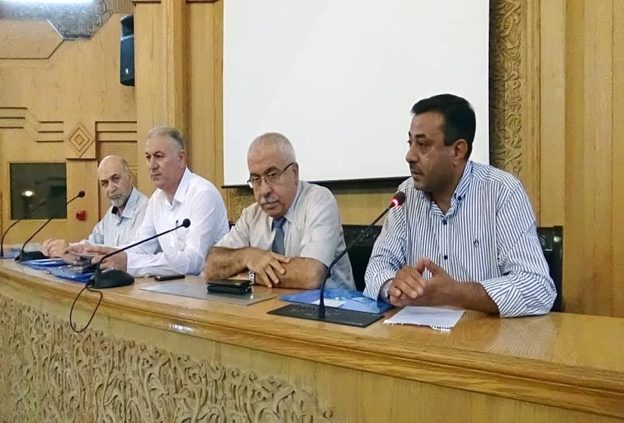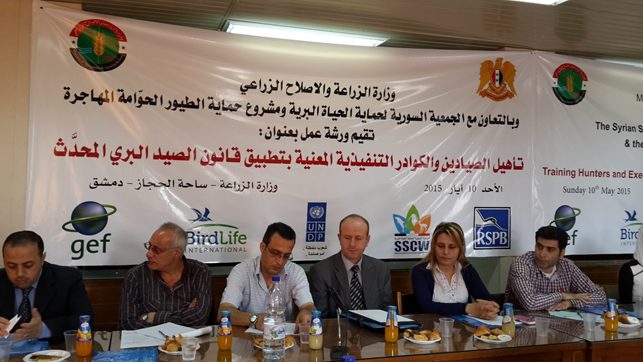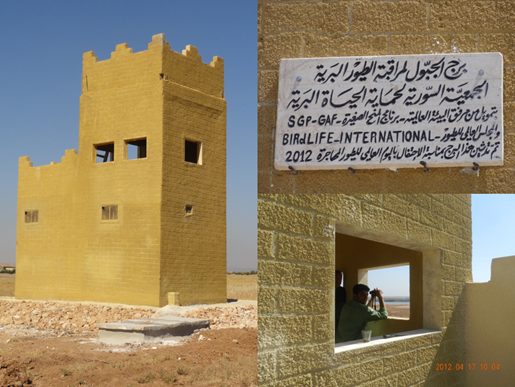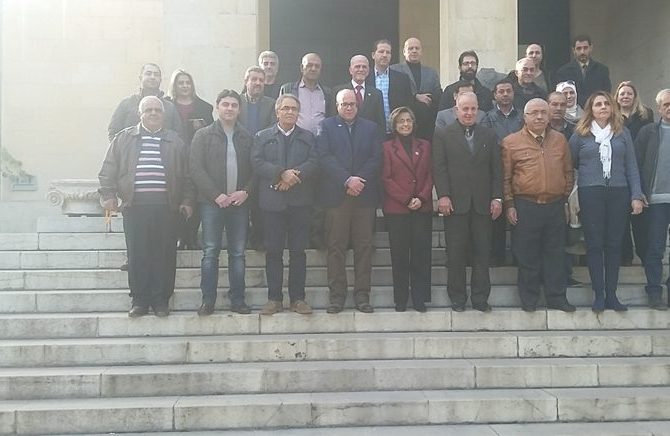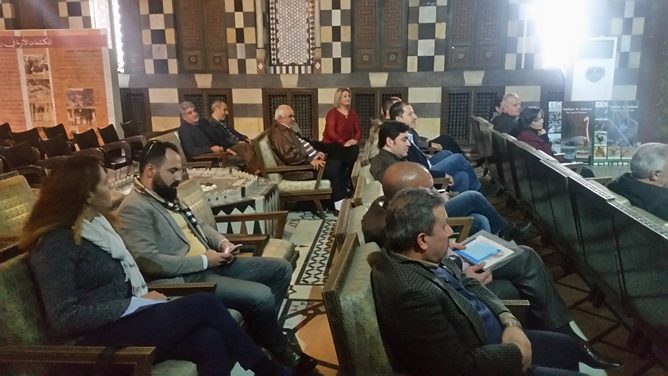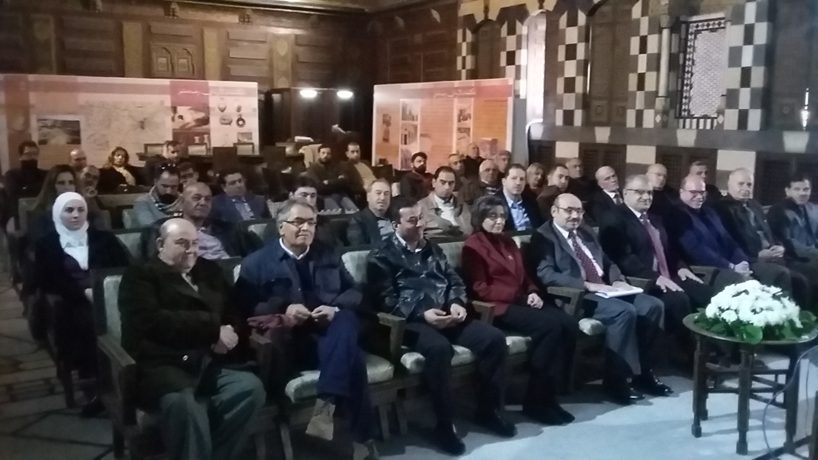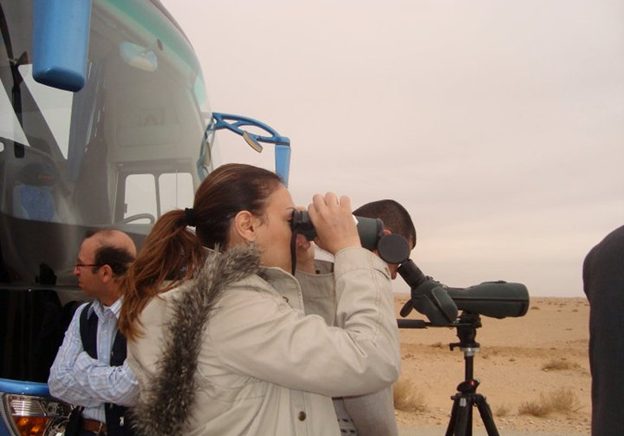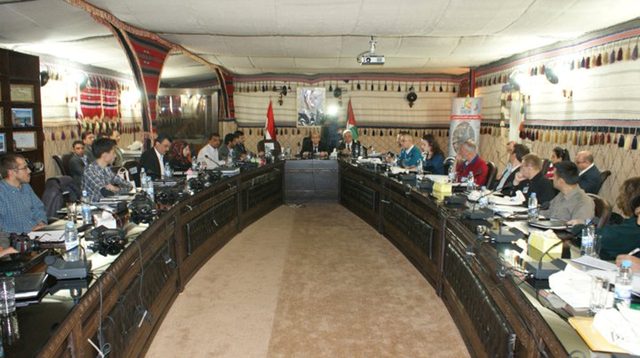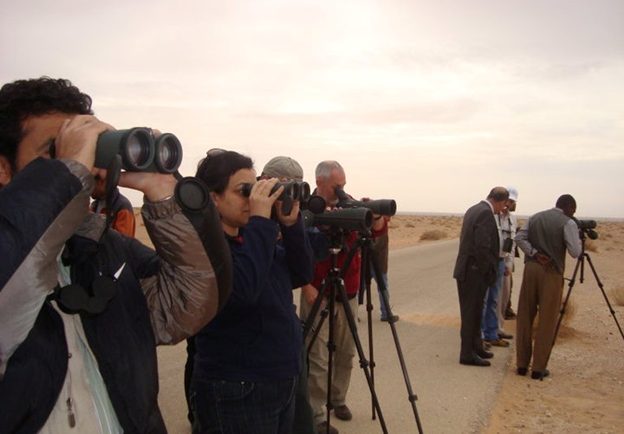Convened by the Syrian Society for the conservation of Wildlife (SSCW) with patronage from Ministry of Local Administration and Environment (MLAE) and in cooperation with Ministry of Agriculture and Agrarian Reform (MAAR), and with logistic support from Birdlife International. The Society held a workshop with the title: (Al-Jabboul Ramsar site: an important Syrian IBA towards sustainable development: Restoration of natural habitats and aspects for economic, social and ecological development to the area). The workshopwas attended by more than 100 participants from different stakeholders from governmental bodies, local communities, research institutes, and supporting agencies involved in the development of the site after the deterioration to the site due to recent unrest activities in the region of Eastern Aleppo.
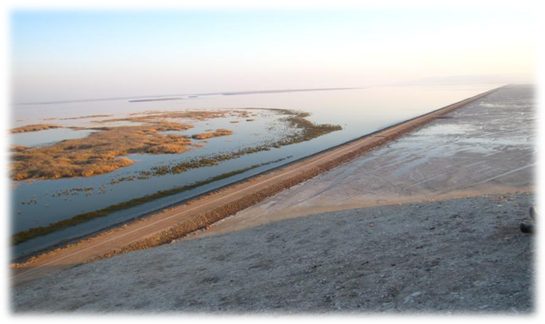
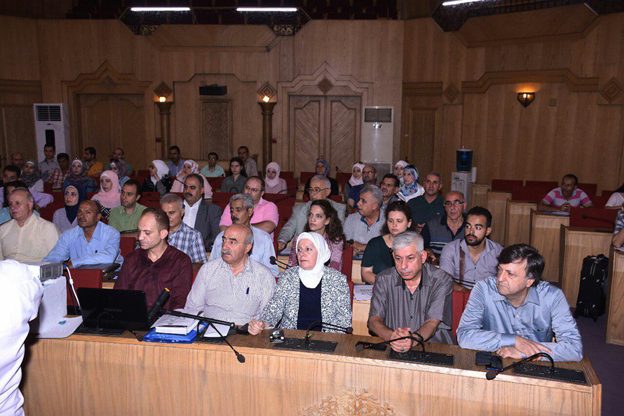
The workshop has some presentations from all relevant stakeholders about their vision to develop the area and how to contribute for the enhancement of locals’ livelihood as well as schemes to generate means for development. The discussions at the end of each session presented ways to move forward in the restoration process with much stress on giving the priorities for the conservation of nature and its unique components over the hast economic development of the communities from direct investments. The workshop concluded with a set of outcomes and recommendation for the Jabboul committee to monitor the restoration taking into consideration its ecological importance as IBA and being the only RAMSAR site in Syria.
